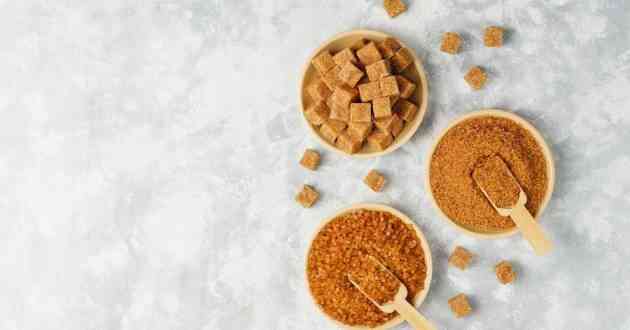How Can Diet Help Control The Symptoms Of Pms?
PMS (premenstrual syndrome) is a condition that occurs before your monthly menstrual cycle

PMS, also known as premenstrual syndrome, is a condition that manifests itself in the days leading up to a woman's monthly menstrual cycle. Premenstrual syndrome (PMS) symptoms can come on like a wave and include irritability, bloating, fatigue, and many other symptoms.
It is estimated that three out of every four women worldwide suffer from this medical condition every month.
Because they range from mild to severe from month to month, these symptoms can be emotionally and physically draining for the person experiencing them. When you cannot control them effectively, it becomes a concern.
Altering your diet is, in addition to the other measures, one of the natural treatments for the premenstrual syndrome known to be both effective and long-lasting.
A List Of PMS Symptoms
It is not entirely clear what causes premenstrual syndrome (PMS), but a growing body of evidence suggests that it may be linked to the natural ups and downs of hormone levels that occur during the menstrual cycle.
These symptoms will typically begin anywhere from one to two weeks before the first day of your period. A wide variety of emotional and physical symptoms accompany the process.
Modifications To Your Diet That Will Help You Fight PMS
To be completely transparent, many women are unaware of the connection between diet and PMS.
Diet can significantly manage your symptoms, freeing you from your concerns and easing your premenstrual syndrome (PMS) and even the menstrual cycle itself.
Let's Get A Handle On How To Manage Your Diet By The Situation
Eat Various Fruits & Veggies
Consuming a greater quantity of freshly prepared fruits and vegetables, which are rich sources of iron and vitamin B, can help you fight off feelings of fatigue. The more
varied the colours in your diet, the greater the nutrients it contains.
Make Sure You Get A Lot Of Water
Drink at least two to three litres of water daily to avoid bloating and digestive issues.
Consume Calcium-Rich And Low-Fat Dairy Products
During premenstrual syndrome (PMS), getting enough calcium in your diet can help stabilise your mood. Take plenty of yoghurt, low-fat cheese, milk, and other dairy and soy products.
Get Vitamin D
According to the findings of one study, having a higher vitamin D intake can help reduce the symptoms of PMS. Vitamin D can be obtained naturally through sun exposure,
Sardines Salmon Oysters
In addition, it is critical to get adequate exposure to natural light and consume high-quality dairy products.
Consume A Greater Amount Of Nuts
Avoid eating salty snacks such as chips and other snacks; instead, opt for nuts because they are abundant in nutrients and omega-3 fatty acids, both of which help you feel full for a longer period and provide energy, and energy reduces feelings of fatigue.
Eat Complex Carbs
Complex carbohydrates are high in fibre and naturally occurring sugars; these carbohydrates will not cause an excessive rise in insulin levels and help regulate mood swings by curbing cravings for unhealthy foods.
Consume Whole Grains
Consuming processed grains like white bread can cause disturbing levels of oestrogen and progesterone, which can lower serotonin levels (serotonin is a hormone that affects moods) and increase feelings of anger, irritability, and anxiety. A drop in serotonin levels can cause these feelings. Therefore, switching to whole grains instead of these during PMS can help improve mood.
Limit Alcohol And Caffeine
Consuming alcohol and caffeine both disrupt sleep, which aggravates the body's hormones and makes a person feel agitated.
Try to abstain from coffee for at least four to six hours before going to bed.
Foods That Assist In The Fight Against PMS
Your cravings for salty and sweet foods and fried and processed foods intensify when you have PMS. But it is necessary to keep the amount of food you eat at the same level.
The management of premenstrual syndrome (PMS) symptoms should involve all food groups. Allow us to explain how to do it;
Pumpkin Seeds
Pumpkin seeds provide 85 % of the daily manganese requirement and 75 % of the daily magnesium requirement. Both of these minerals help regulate irritability and stress levels. Magnesium is known to improve mood as well as reduce fluid retention.
Eggs
Eggs are a complete protein and are excellent sources of vitamins E, D, and B6, preventing symptoms of PMS.
A study showed that a diet rich in vitamins D & B could also reduce the symptoms; Vitamin E is another nutrient that can bust PMS symptoms.
Chamomile Tea
Chamomile is consumed to lower stress. Chamomile helps to reduce anxiety and sleep issues. It also relieves the severity of cramps and lower hormonal shifts due to PMS. Avoid drinking tea or coffee, which triggers irritability and tenderness of breasts due to caffeine.
The Bottom Line
PMS is a complex but highly treatable disorder. However, some diet and lifestyle changes like increasing calcium, magnesium, vitamin B6, and potassium intake can help prevent its symptoms. Other than that, consuming fresh veggies and fruits with whole grains and practising physical exercise can also assist in overcoming this premenstrual syndrome.



